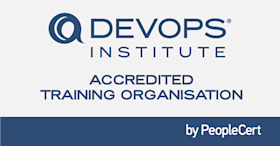The Site Reliability Engineering (SRE) Foundation℠ course introduces a range of practices for improving service reliability through a mixture of automation, working methods and organisational re-alignment. Tailored for those focused on large-scale service availability, this course is an introduction to the principles and practices that enable an organisation to reliably and economically scale critical services. Introducing a site-reliability dimension requires organisational re-alignment, a new focus on engineering and automation, and the adoption of a range of new working paradigms.
This SRE training course highlights the evolution of SRE and its future direction, and equips participants with the practices, methods, and tools to engage people across the organisation involved in reliability and stability evidenced through the use of real-life scenarios and case stories. Upon completion of the course, participants will have tangible takeaways to leverage when back in the office such as understanding, setting and tracking Service Level Objectives (SLOs).
This foundation-level Site Reliability Engineering Training course was developed by leveraging key SRE sources, engaging with thoughtleaders in the SRE space, and working with organisations embracing SRE to extract real life best practices, and has been designed to teach the key principles and practices necessary for starting SRE adoption.
Included with this course:
Learner Manual (excellent post-class reference) including a glossary
Participation in exercises and discussions designed to apply concepts
Case stories
Exam voucher
Access to additional sources of information and communities
Examination
This course pricing includes an exam voucher to sit an online proctored exam through PeopleCert. A sample exam paper will be discussed during class to assist with preparation.
60 minutes
40 multiple-choice questions
Answer 26 questions correctly (65%) to pass
Open book (official training materials only)

